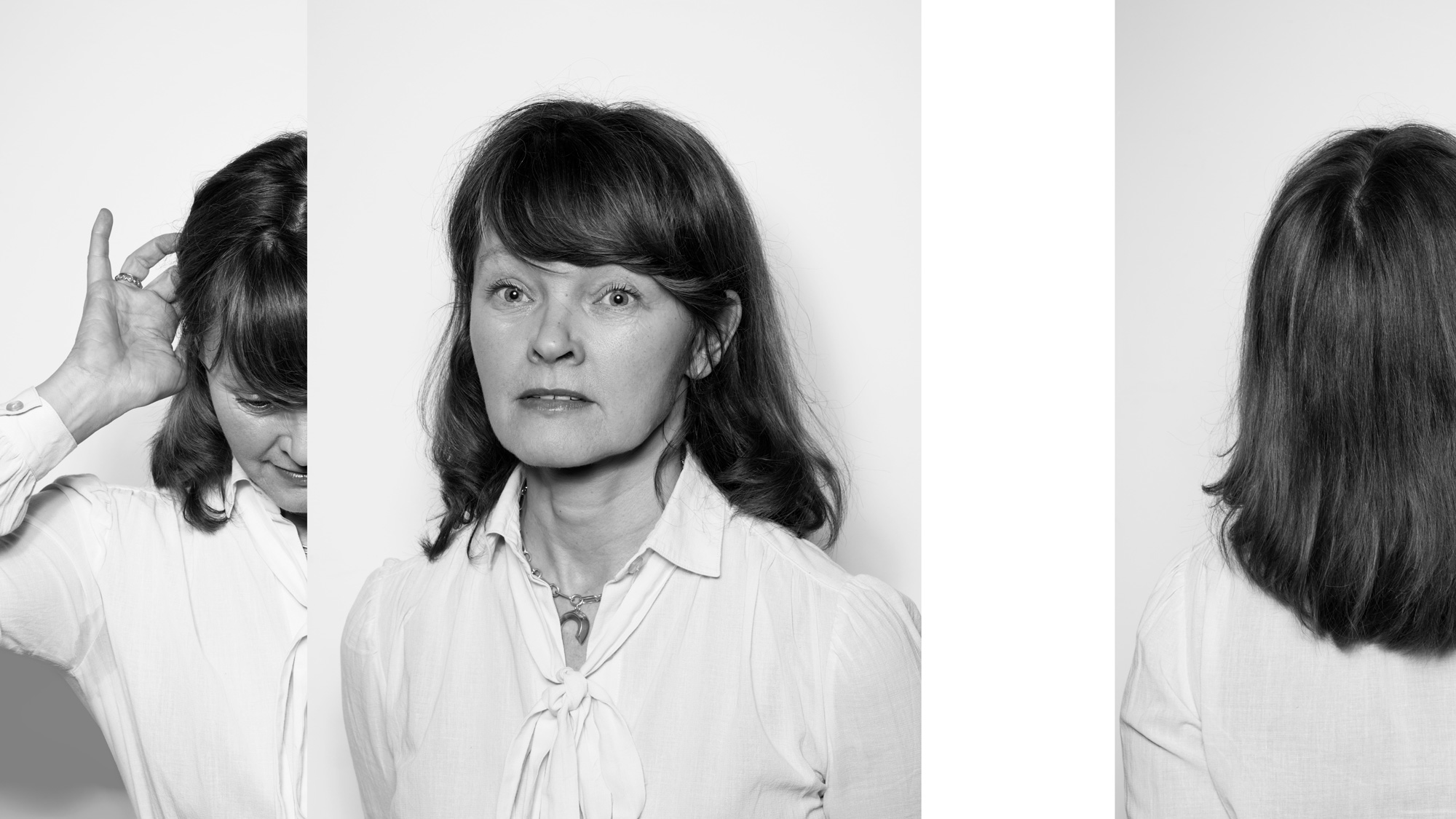CPH:DOX founder and director Tine Fischer discusses paradigm shifts in audiovisual culture, the rise of art in documenting reality, and the different golden ages of documentary film.
Photo: Emil Hartvig
Sound Matters: CPH:DOX
Tine Fischer
CPH:DOX (or Copenhagen International Documentary Film Festival, if you prefer) has been part of an international shift towards non-fiction films that push the boundaries of how we depict our world. DOX founder Tine Fischer discusses paradigm shifts in audiovisual culture, the rise of art in documenting reality, and the different golden ages of documentary film.
Interview by Nathaniel Budzinski
Tell us what brought you to start up CPH:DOX when you did. Did it fill a missing gap? How did the audience react at the time?
The very first edition of CPH:DOX was in 2003 – documentaries were really not on any cultural radar at that time. You could watch documentaries after 10pm on public broadcast TV and in schools but rarely in cinemas and not online. Just around the time we decided to start CPH:DOX things started happening. It was not long after 911 and the “War on Terror” was declared, and you could feel an urgency and public interest in dealing with the real. Michael Moore won the Palme D’Or in 2004 for best Picture in Cannes with his film Fahrenheit 9/11 (the first time a doc won that prize). The film created enormous controversy and became the highest grossing documentary of all time. It might not go into the history of cinema as a masterpiece but one should definitely not underestimate the huge impact that film had at the time – both in terms of building a much stronger industry interest in documentaries, but also by creating a different and heightened self-esteem among the filmmakers and by placing documentaries on a very high impact agenda.
Back in Denmark a new generation of filmmakers were starting to pop up. A few years earlier the Danish National Film School had started the very first non-fiction department – vis-a-vis the successful fiction department. So, suddenly we had young filmmakers graduating who had been trained in the language of art and cinema just as their fiction colleagues. It totally changed the scene. The contemporary art scene also had a growing interest in documentary – Douglas Gordon & Philippe Parreno’s Zidane, A 21st Century Portrait premiered in Cannes and suddenly the art and documentary worlds met.
With all this happening or just about to happen we founded the festival. It was so evident that there was a new approach to non-fiction, a new generation and possibly a new audience waiting.
So even though starting a documentary film festival seemed like a tough cookie – in the sense that not very many people were actually watching the films – back then it also seemed like something was on its way, almost as a paradigmatic turn away from the observational prison of direct cinema into a much more heterogenous, free, and fun space.
For a while now commentators have heralded a new golden age of documentary film making, especially in the context of platforms like YouTube, Netflix etc. You have a unique vantage point on this. Can you nuance this ‘golden age’ notion from your seat in the cinema?
I think it’s important to say that this ‘golden age’ can be talked about in several different ways. They are all valid. In my opinion the most important one has to do with what we just talked about. The documentary scene has changed so much during the last ten years. Aesthetic paradigms have been pushed, genres collapsed or disrupted and the doc scene today is a mix of really interesting profiles coming from visual anthropology, contemporary art, cinema, digital and interactive, political activism, science and research. What was highly experimental and difficult to finance and get broadcasters interested in ten years ago, is now Oscar nominated. The Act Of Killing was unthinkable ten years back, but it recently almost won an Oscar. So the golden age of documentary film making for me is the fact that the scene has turned into being of the most interesting places in the cultural sector. It’s aesthetically pushing boundaries, it’s politically ambitious – and it’s such an important answer to fake news and digital entertainment trash.
There’s of course also the more qualitative ‘golden age’ having to do with the fact that there’s so much non-fiction content out there. Netflix, of course, but also Amazon, YouTube and all the other streaming platforms. Netflix is playing a very important role at the moment because they produce and buy, and bring finance into the scene – not only directed towards mainstream but also artistically ambitious films like the this year’s Oscar-nominated Strong Island. But Netflix is also a tech-company driven by data, so I hope that they are willing to go into a dialogue with the European film industry and all the institutions that support a free, artistic and hopefully collective cinema of the future.
““I’m all for online content and information but it definitely doesn’t cover my need for a space which is profoundly collective – and even more so for having real aesthetic contemplation.””
DOX has grown since starting in 2003. What kind of changes do you feel in how audiences relate to what's being screened, and the festival itself?
It’s a whole different world! People in general, the press, the film industry – it has all changed, and for the better. CPH:DOX was founded on a very open-minded approach to how we define non-fiction. We’ve fought to include what is sometimes referred to as hybrid cinema – a mix between fiction and non-fiction – we have included contemporary video art, experimental film, performance film, and live cinema. During the first years we had juries leaving screenings because they refused to accept our definition of documentary, I had broadcasters and partners call and ask us to reconsider our profile and journalists refusing to classify us as a documentary film festival. All this has changed. There’s an openness and curiosity towards the genre today that was absent ten years ago.
Increasingly so much audiovisual material is consumed on small screens and in solitary environments – where do you place the future importance of a festival like DOX, and indeed festivals in general?
I love that you ask this! I think I have my eyes on a small screen 50 percent of the time that I’m awake – mails, films, news, social media, content of all kinds. Most of it stays with me as a solitary experience in the sense that there’s so little time to share it. I’m all for online content and information but it definitely doesn’t cover my need for a space which is profoundly collective – and even more so for having real aesthetic contemplation. The movie theatre is a space where you lose control, you turn off other devices and you let yourself go into something else. The attention, contemplation and ultimately collective sense of being with others is so unique. I’m totally aware that the art house cinema institution has somehow failed to re-design itself, but I strongly believe that there’s a huge potential for reinventing the collective, live film experience – just as we have seen the live scene in the music industry boom during the last five years. As a festival we are working strategically to develop this space. How do we transform the cinema experience from being a one-way relationship between screen and audience into being an interactive – and democratic – space between the filmmakers, artist, audiences and civil society at large.
You recently shifted the dates of DOX to accommodate for a larger festival, in a way outgrowing your previous time slot. Where do you want DOX to head in the coming years? What ambitions do you have for the festival and the culture it gives platform to, and helps shape?
We have made it an ambition to be the best film festival in and for the world. It’s not meant to sound like a megalomaniac, but we have been running like mad for the last ten years – growing in volume, audience and industry. I believe with the position we’re in now it's time to carefully consider how the festival is, and can become a driver and facilitator for creating actual social change. I strongly believe that the entire arts and cultural sector have resources that go far beyond the aesthetic field itself and those resources should be addressed and framed. This year we have asked The xx to curate a program and they have, in such a generous way, selected a line-up of films, talks and events dealing with gender, identity and LGBT stories. They will be here to present the films and meet the audience, and have partnered with a number of local LGBTQ organisations for the events. It’s “Walking the Talk”. It’s creating communities on the floor – from a position where people listen. I’m full of admiration for this kind of effort and as a festival now we’re very focused on not only curating but also building bridges and creating new lasting communities and dialogues.




